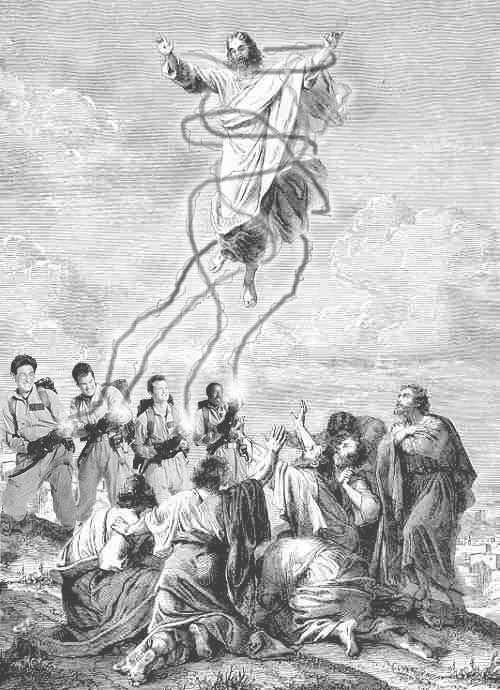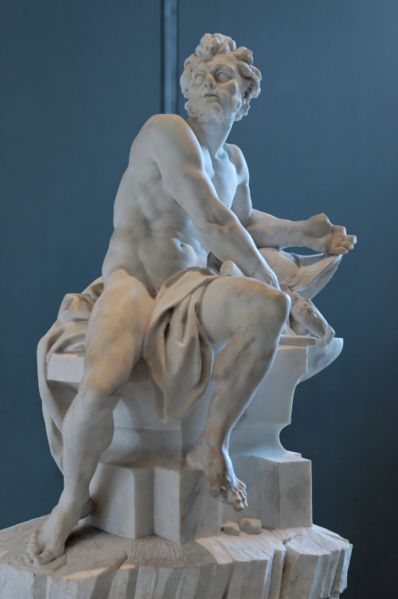The
Hellenion calendar provides monthly libation to the Agathos Daimon at the end of the modern month, or the 2nd of the Athenian calendar, but not really knowing much of this, I decided to see what I could find in my books instead of the usual usage of my
GoogleFu. Walter Burkert in
Greek Religion mentions only lightly the Agathos Daimon, or the good spirit, while going on more in length to the
daimon in general.
"The etymological meaning of the thoroughly Greek-looking word
daimon is once again impossible to discover with certainty. Nevertheless it is clear that the early uses of the word neither the status of a daimon in relation to the gods nor its character is defined, to say nothing of its conception as spirit. In the Iliad, the gods assembled on Mount Olympus can be called
daimones, and Aphrodite leads the way ahead of Helen as
daimon. A hero may rush headlong 'like a daimon' and still be called god-like,
isotheos. Conversely, the demons that fly from Pandora's jar are personified as 'illness',
nousoi, but are not called daimones; the death-bringing spirits of destruction,
keres, are called theoi, as are Erinyes in Aeschylus. Possession, too, is the work of a god. Daimon does not designate a specific class of divine beings, but a peculiar mode of activity (Burkert 180).
This I found interesting, because the Good Daimon, the
Agathos Daimon appears to have cult practices attributed to it. The first wine libation is done in its name. An interesting passage mentons that "Plutarch uses the word proper to burn sacrifice, but this is no offering to an Olympian, it is simply the solemn pouring out of a little of the new wine, that so the whole may be released from tabu. This 'sacrifice' of the new wine, is to begin with, made to nothing and nobody, but bit by bit a
daimon of the act emerges, and he is the Agathos Daimon." (
Harrison 277)
It is known for taking the shape of a serpent, at times a winged serpent.
Burkert later continous to assert that daimon is more akin to a force, a power that drives man forward where no agent can be named. We probably call this in modern terms the Will, Desire, Drive, Passion or Stubbornness, depending on the qualities. If you feel that it is acting in accordance with you, it is called
syn daimon, and when the tides turn the other way it is
pros daimona. Perhaps it is too much on my part to think it resembles what Thelemites call "achieving your true Will."
From what I gather, the Agathos Daimon is formed after the application of mindful actions, perhaps even pious ones. From that, the good daimon is borne forth. I had originally began to think that the Agathos Daimon was something akin to a "spirit guide" or a "guardian" of some sort, now I find that this is incorrect. However it is also noted that Pythagoreans were able to hear and see the daimones (Burkert 180).
Burkert makes the distinction that the daimon is not, in essence, a spirit as we define it, but a force. Harrison, in her book
Epilogemena, mentions that it is a fertility spirit whose cult predates the Olympians. The Agathos Daimon are the snakes appearing on the kerykeion, or caduceus of Hermes, "had the power to compel fertility" (279). I have never seen the association of fertility with the caduceus, much less with Hermes.
I find that the following two quotations sums up quite nicely what I have begun to understand on the nature of the daimon. "The ordinary man sees only what happens to him, unpredictable and not of his own enacting, and he calls the diving power daimon, something like fate, but without any person who plants and ordains being visible. One must be on good terms with it: "The daimon active about me I will always consciously put to rights with me by cultivating him according to my means. (181)"
"Man's daimon is his destiny." Thus strikingly does Heraclitus make reference to this fact. He extends man's vital essence far beyond the personal. The personality is the vehicle of the daimon, which is not confined within the limit of the personality, and for which the birth and death of the personality are of no importance. What is the relation of the daimonic element to the personality which comes and goes? The personality is only a form for the manifestation of the daimon. **













 This is an image of Aphrodite Bactria, named after the region in which she was found. Her pose is very much in the Grecian style, while having hindi jewelry and a dot (third eye) to show that she is married, while the wings are more of a Near Eastern style placing her as a local deity.
This is an image of Aphrodite Bactria, named after the region in which she was found. Her pose is very much in the Grecian style, while having hindi jewelry and a dot (third eye) to show that she is married, while the wings are more of a Near Eastern style placing her as a local deity.








